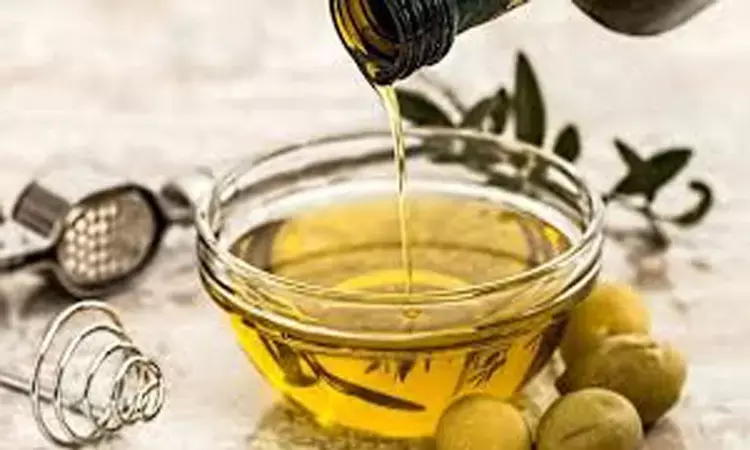- Home
- Medical news & Guidelines
- Anesthesiology
- Cardiology and CTVS
- Critical Care
- Dentistry
- Dermatology
- Diabetes and Endocrinology
- ENT
- Gastroenterology
- Medicine
- Nephrology
- Neurology
- Obstretics-Gynaecology
- Oncology
- Ophthalmology
- Orthopaedics
- Pediatrics-Neonatology
- Psychiatry
- Pulmonology
- Radiology
- Surgery
- Urology
- Laboratory Medicine
- Diet
- Nursing
- Paramedical
- Physiotherapy
- Health news
- Fact Check
- Bone Health Fact Check
- Brain Health Fact Check
- Cancer Related Fact Check
- Child Care Fact Check
- Dental and oral health fact check
- Diabetes and metabolic health fact check
- Diet and Nutrition Fact Check
- Eye and ENT Care Fact Check
- Fitness fact check
- Gut health fact check
- Heart health fact check
- Kidney health fact check
- Medical education fact check
- Men's health fact check
- Respiratory fact check
- Skin and hair care fact check
- Vaccine and Immunization fact check
- Women's health fact check
- AYUSH
- State News
- Andaman and Nicobar Islands
- Andhra Pradesh
- Arunachal Pradesh
- Assam
- Bihar
- Chandigarh
- Chattisgarh
- Dadra and Nagar Haveli
- Daman and Diu
- Delhi
- Goa
- Gujarat
- Haryana
- Himachal Pradesh
- Jammu & Kashmir
- Jharkhand
- Karnataka
- Kerala
- Ladakh
- Lakshadweep
- Madhya Pradesh
- Maharashtra
- Manipur
- Meghalaya
- Mizoram
- Nagaland
- Odisha
- Puducherry
- Punjab
- Rajasthan
- Sikkim
- Tamil Nadu
- Telangana
- Tripura
- Uttar Pradesh
- Uttrakhand
- West Bengal
- Medical Education
- Industry
Orujo olive oil may help reduce obesity significantly

Researchers from the Department of Pharmacology, Paediatrics and Radiology at the University of Seville, in collaboration with Dr. Rodriguez from the International University of Catalonia, have confirmed that Orujo Olive OIL (POCTA), when introduced into the diet, produces a significant reduction in obesity and vascular and inflammatory complications in obese mice. In addition, given that POCTA has been obtained from a by-product of olive oil, orujo, which is considered as industrial waste, this study helps to increase its biological and nutritional value as a functional food, being its main source of bioactive compounds, the triterpenic acids.
To carry out this research, a comparative study was made over the course of 10 weeks in mice with two types of diets; a diet high in saturated fats, called "prejudicial" fat, and another, with the same calorie content, but with orujo olive oil. After this time was over, a significant reduction in weight was observed (around 30%) in the mice fed with POCTA in comparison with the group fed with the high-fat diet.
This study shows for the first time that POCTA, "does not only reduce body weight in obese animals, but also reduces body fat (adipose tissue), hepatic inflammation, while, at the same time, reducing resistance to insulin and vascular dysfunction associated with obesity", explains the University of Seville researcher Carmen Maris Claro Cala.
These preliminary studies in animals provide very important information about the traditional use of orujo olive oil as a functional food due to its content of triterpenic acids, such as oleanolic acid and maslinic acid as bioactive molecules. However, the researcher indicates that "before being able to establish the therapeutic potential of these molecules, controlled clinical trials should be carried out so as to be able to arrive at conclusions about their action in humans and any repercussions on health".
Other oils on the market
Unlike other types of oils, like coconut or palm oil, the oil obtained from the orujo of the olive, a product forgotten in recent years, has shown itself to be a source of bioactive molecules with great therapeutic potential against obesity and the metabolic dysfunctions developed with Metabolic Syndrome. The results of this study "open a new line of research in investigating the Mediterranean diet", the researcher adds.
For more details click on the link: http://dx.doi.org/10.3390/nu12020323
Hina Zahid Joined Medical Dialogue in 2017 with a passion to work as a Reporter. She coordinates with various national and international journals and association and covers all the stories related to Medical guidelines, Medical Journals, rare medical surgeries as well as all the updates in the medical field. Email: editorial@medicaldialogues.in. Contact no. 011-43720751
Dr Kamal Kant Kohli-MBBS, DTCD- a chest specialist with more than 30 years of practice and a flair for writing clinical articles, Dr Kamal Kant Kohli joined Medical Dialogues as a Chief Editor of Medical News. Besides writing articles, as an editor, he proofreads and verifies all the medical content published on Medical Dialogues including those coming from journals, studies,medical conferences,guidelines etc. Email: drkohli@medicaldialogues.in. Contact no. 011-43720751


